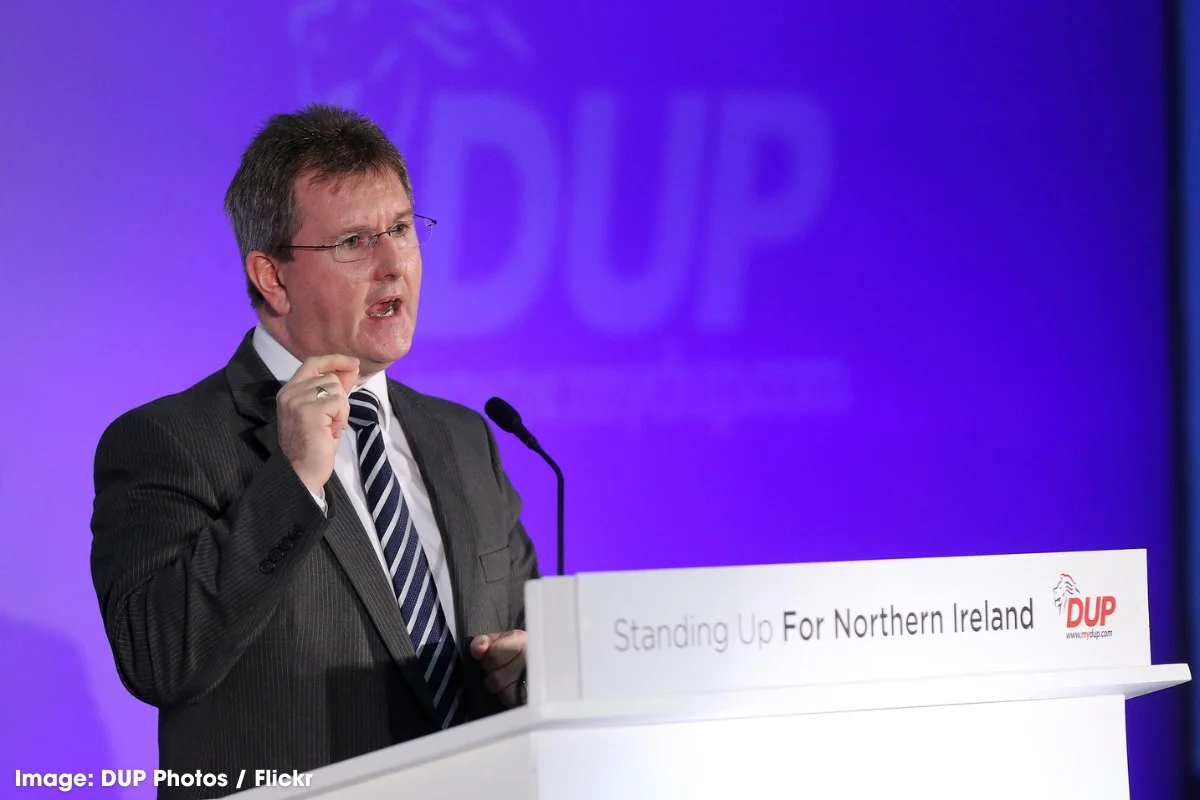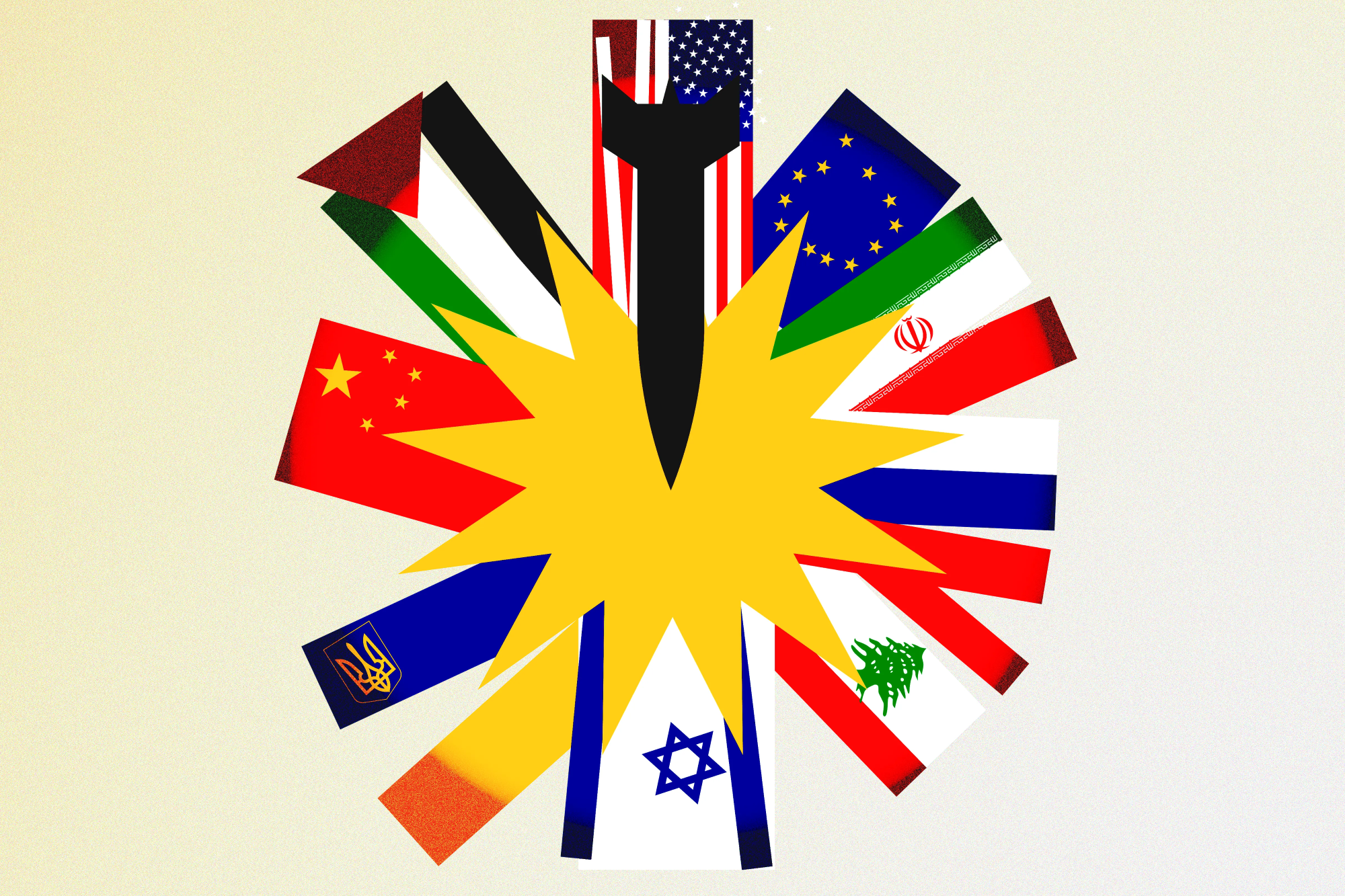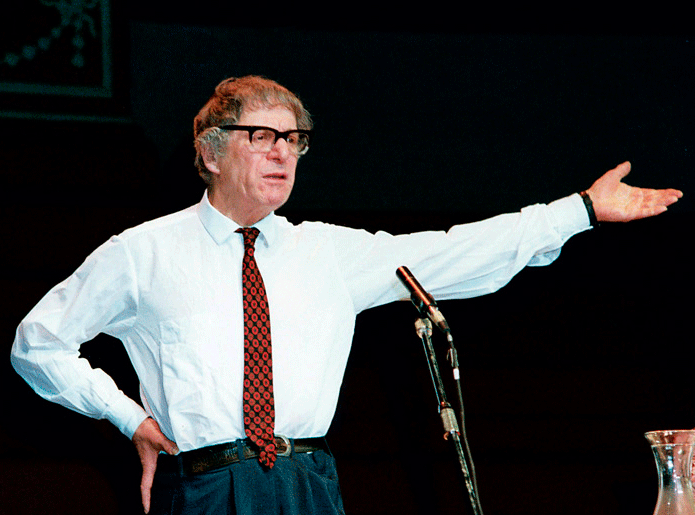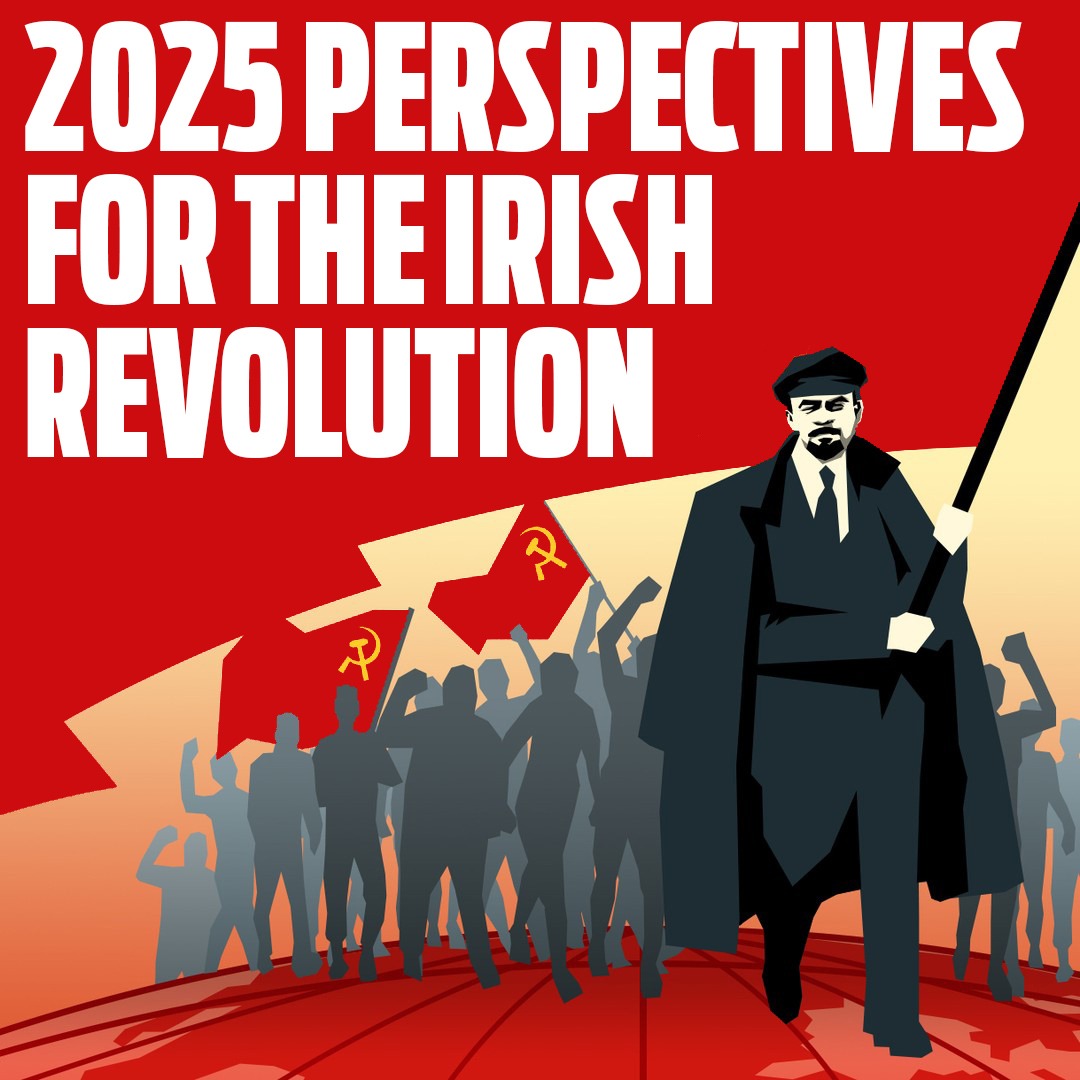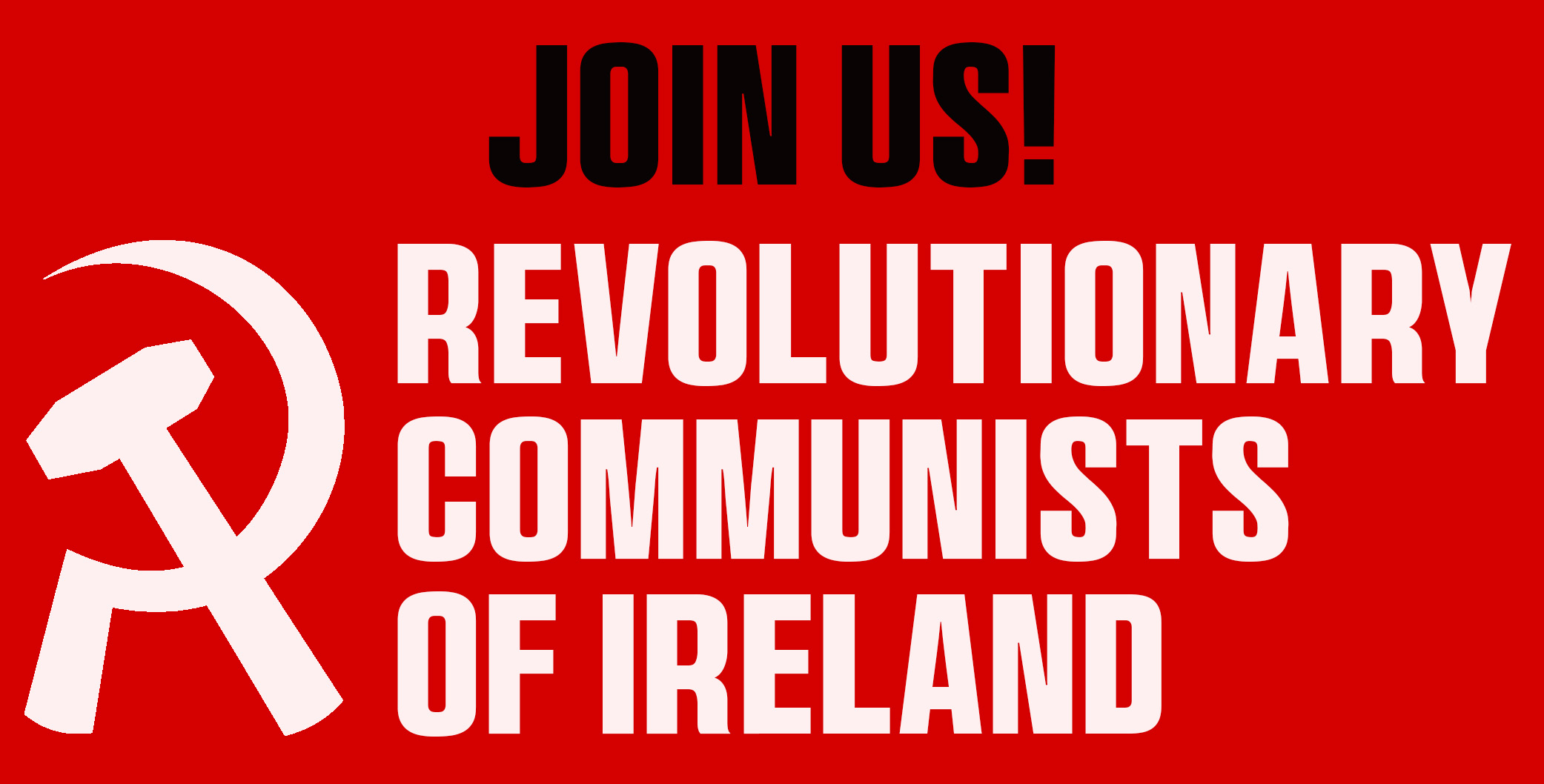The political landscape in the North of Ireland has been blown wide open by the shocking arrest of DUP leader Jeffrey Donaldson, who has been charged with historic sexual offences. Like a bolt from a clear blue sky, Unionism has been struck a mighty blow. The ranks of the DUP have been left in total disarray.
Shortly after the news became public, Donaldson was immediately suspended from the party and from the Orange Order, “pending the outcome of the legal preceding”, in an immediate attempt to avoid reputational harm.
Donaldson has since resigned as DUP leader, with Gavin Robinson unanimously appointed by party officers to fill the void as interim leader.
In a public statement, Donaldson said that he will be “strenuously contesting the charges”. But the political fallout has already begun.
Unionism in crisis
The DUP and Unionism are both already plagued with crises.
The rise of Sinn Féin as the leading party in both the local and Stormont elections has delivered a historic blow to Unionism.
The DUP have increasingly been shedding votes to the non-sectarian, moderate, Unionist-lite Alliance Party. On the other side, they are increasingly being outflanked by the overtly sectarian, hardline-Unionists of the TUV.
Demographic changes, the possibility of a United Ireland, and the crisis of capitalism in the North are producing increasing polarisation, dividing Unionism and the support base of the DUP.
These growing cracks in Unionism terrify the DUP leadership, exacerbating the existing factional divide.
The legitimacy of the DUP leaders was already in terminal decline. The arrest of Donaldson for such heinous charges will only push the party further into the abyss, exposing the rottenness that has festered in an organisation that claims to champion ‘Christian family values’.
DUP civil war
Donaldson only rose to the leadership position in 2021, after a vicious internal power struggle inside the party between himself and Edwin Poots, following the coup against Arlene Foster.
Many party members, including some councillors, resigned in disgust over the campaign of alleged bullying and intimidation waged by Poots and his lackeys, as he clambered for the top spot.
Poots himself was then overthrown by DUP officials after a whopping 21 days as leader! And Donaldson was his chosen successor, in a bid to smooth over the imbuing civil war in the party.
Donaldson was attempting to reconcile the irreconcilable: on the one hand, between Northern businesses that are quite happy to reconcile themselves with the Windsor Agreement, which gives them all the benefits of access to both the British and EU market; and on the other, the Frankenstein’s monster of hardline Unionism.
At the same time, he wanted to appease his Tory masters in Westminster, who were pushing for the return of the Stormont Assembly as a celebratory win for Rishi Sunak. In return, it seemed that the UK Prime Minister might even have been able to reserve Donaldson a spot in the House of Lords.
It took all the skill and authority that a veteran like Donaldson had to navigate the DUP civil war – authority that his ‘moderate’ allies like Gavin Robinson and Emma Little-Pengelly, as relative newcomers to the party, completely lack.
Now, after a mere eight weeks after Stormont’s return, all that lies in tatters.
Stormont instability
For now, the party is shell-shocked. All the talk is about stabilising the situation. But that won’t last long.
The growing contradictions inside the DUP increasingly have the makings of a split. With the removal of Donaldson at the helm, the hardliners may now be able to run roughshod over the opposing faction – either subduing the moderates or accelerating the breakup of the party.
The potential implications of Donaldson’s arrest and the charges against him cannot be overstated. The inevitable ensuing leadership contest will determine the future trajectory of Unionism, the DUP, Northern relations with Westminster, and ultimately of the Stormont Executive.
Having just returned after three years of collapse, Stormont could be shut down once again, if the hardliner layer of the party regains prominence.
Poots and his ilk want to boycott Stormont in the fight against any involvement in the EU single market, seeing it as a stepping stone to an ‘Economic United Ireland’.
The return of Poots as leader, or another of his variety, would see the most rabid wing of the DUP push the party’s poisonous, reactionary ‘tradition’ of misogyny, homophobia, racism, and sectarianism to the fore, deliberately stoking tensions between Catholic and Protestant workers.
The other leaders in Stormont, including Sinn Féin’s First Minister Michelle O’Neill, have stressed that this event poses no threat to the power sharing institutions. But this is wishful thinking.
DUP MPs and MLAs are staring resolutely at an impending general election, which could see them given their marching orders from Parliament.
The DUP is a cornered, wounded animal. This will make it all the more unpredictable. Those with a die-hard voter base may jump back on the boycott train over the Windsor Agreement, in order to increase Unionist turnout and staunch the bleed of votes going over to the TUV.
These developments are also another blow to the prestige of Sunak and his cabinet, who got a rare win with the restoration of Stormont.
For a Socialist United Ireland
These dramatic events are just the latest twist in the crisis of the regime in the North of Ireland, which lurches from one disaster to the next.
Fundamentally, this is rooted in the decay of capitalism, which cannot provide a way forward for the masses of the region.
The whole system is being discredited by scandal upon scandal. Each twist is like a hammer blow to the consciousness of the masses, convincing wide layers that the whole setup is rotten.
In the midst of this, the most advanced workers must come together and present an independent class alternative.
This can only come from the revolutionary overthrow of capitalism in Ireland – North and South – and the formation of a 32-county socialist republic.
